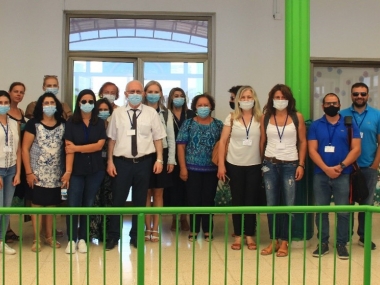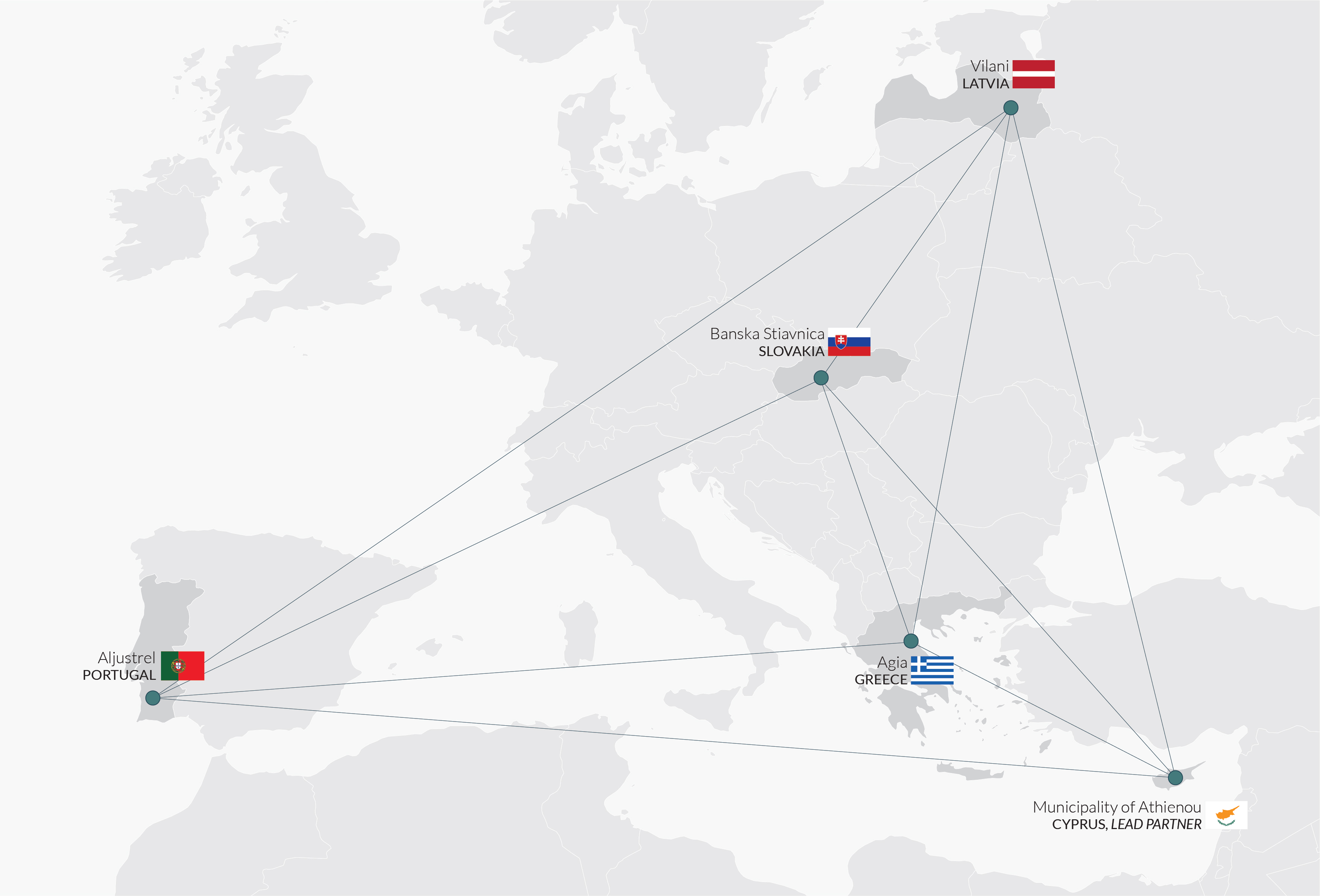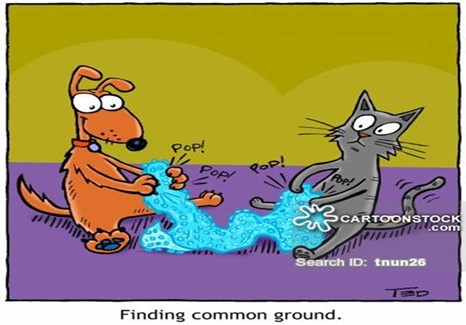Looking for just societies through volunteering!
Edited on
18 November 2021Cities that face currently emerging multidimensional social needs such as elderly and children care, social isolation and depression, unemployment and poverty, just to name some, need to develop innovative policies through the creation of collective learning processes based on exchange and peer-to-peer learning. This is the policy change Volunteering Cities+ network is developing supported by the URBACT methodology!

Volunteering helps building a more cohesive, safer, stronger community since it increases the social network within and between communities. Volunteering promotes people to be more active in civic engagement and concerned of citizenship. Volunteers make a great contribution to society through a substantial contribution to long-term development, cross-cultural exchange, community-building, social inclusion and poverty reduction while they improve their skills and competencies and, consequently, the employability in the case of young volunteers.
Volunteerism is fundamental to achieve the key 2030 Agenda principles of ensuring that “no one is left behind” and to “reach the furthest behind first.” The 2030 Agenda recognizes the vital roles that volunteers everywhere are playing and the UNGA[1] adopted a Plan of Action developed by United Nations Member States to help volunteering stakeholders enhance the recognition and integration of volunteerism into the Sustainable Development Goals (SDGs). Through the concerted efforts of volunteers, governments, civil society, the private sector and the United Nations, the Plan of Action seeks to strengthen people’s ownership of the 2030 Agenda, integrate and mainstream volunteering into national strategies and policies and better measure the impact of volunteers.
Volunteers can extensively support the most vulnerable, while engaging in volunteering can empower marginalized people to own the solutions to the challenges they face. Having in consideration the ageing population of Europe, in general and of the territories involved in VC+ network in particular, elderly people can benefit from volunteering either by actively participating or by receiving services.

Moreover, Volunteering gives volunteers, especially important for young people, the opportunity to practice and develop social skills, by improving the social skills and competencies, considered today a key element of employability and an Exchange platform by meeting regularly with a group of people with common interests.
The “Volunteering cities+” is one of the 7 “second wave” transfer networks approved by the URBACT Secretariat in June 2021. This network is led by the city of Athienou in Cyprus that was awarded the URBACT Good Practice Label in 2017.
The transfer network “Volunteering Cities+” aims to promote the transfer and adaptation of this Good Practice, consisting of volunteering structured and intergenerational processes, to the partner cities as leverage to improve social inclusion, to fight poverty and raise better levels of citizens’ quality of life in a more cohesive society. In this structured participative “new” Governance Model to design and implement the municipal social policy, the volunteers play a key role.
Framed within a national Programme, Athienou city has established a Municipal Council of Volunteerism (MCV), chaired by the Mayor, with 48 members elected by the community (local organizations, political parties, parents associations, church and sponsors). The MCV is an umbrella Council for four programs, each one with its own Council of volunteers, supporting the programs’ staff in their tasks and responsibilities. The four programs are: an Elderly Home, a Center for Adults with initiatives related with occupational activities for isolated people and day care activities, the Municipal Nursery Center and the Social Welfare Committee. This latter Committee, chaired by the Mayor and with a close collaboration with the Social Welfare Office and the Ministry of Education, is a kind of a social department of the municipality but working with a participative structure.
Kyriacos Kareklas, Mayor of Athienou and Lead Partner of the present Transfer Network states that “Although, volunteers take the decisions, the committee operates under strict standards, it reports for its actions and it is audited by the legal authorities. Since its establishment in 2012, an average of 40 individuals is supported at any given time. The support is also in full collaboration with the rest of the programs of the MCV”.
The MCV as a whole uses a bottom up approach, with the institutions achieving a vertical and horizontal integration that allows the volunteers to take decisions with the necessary validation.
A key sustainability factor of these initiatives is the intergenerational element, joint initiatives of different age groups of the community. The children begin very early to participate in volunteering activities as well as are also beneficiaries of volunteering activities fostering a continuity culture from generation to generation. As an example can be mentioned the weekly regular visits of the children to the elderly home in order to have some joint entertainment activities with the old people. Another example is the frequent visits that volunteers make to schools with storytelling initiatives to encourage the volunteering engagement of children and young people.
Furthermore, there is an additional element based on a strong involvement of the profit private sector through Corporate Social Responsibility component from the main Employers’ Associations of the Region. This rather extraordinary support given by the private sector to the social welfare of the region has some reasons. In the first place it is necessary to mention that the economic tissue of the area is essentially based on agriculture, cattle breeding and other related industries. For instance, this Association is providing the Elderly Home with 30liters milk a day and 20 Kg meat a week free of charge. These sectors are essentially family rooted with a strong intergenerational succession in the businesses. This succession feeds the continuation of the existing cohesive culture and the solidarity principle in the society.
Kyriacos Kareklas also says, “Athienou Good Practice was generated in the city for many years. Its key-strength is the inter-generational collaboration, in which different age groups of both volunteers and individuals facing social problems, work together towards a sustainable evolution of the quality of life within local society”.

The “first wave” transfer network involved seven partner cities with a wide geographically distribution across Europe to enable a wider testing of the necessary approaches in different contexts and Governance Models: Capizzi in Italy (Sicily) and Athy in Ireland (Kildare County), Radlin in Poland, Altena in Germany, Altea in Spain, Arcos de Valdevez in Portugal and Pregrada in Croatia and the results were extremely positive opening the wish to transfer the model further to other cities. Mainly all 7 cities have created/adapted the MCV as a new instrument of participative governance with volunteers’ participation, increased the intergenerational activities, fostered higher levels of volunteers, including young people, and have designed an SDG plan for the involvement of companies. Furthermore, the diagram below shows how the members of the ULG have seen their skills improvements by area, with a big reinforcement of the soft skills too.

The “second wave” network Volunteering Cities+ has new 4 partner cities:


As always, the biggest challenge for the transfer network is to achieve a common ground of understanding to be able to identify the priority Modules and methodologies for the transfer better suiting each one of the partner cities having in consideration the wide variety of socio-economic characteristics, governance contexts and the small dimension of all cities involved. The population varies from around 6,000 inhabitants to 11,000 inhabitants.
To be able to face the above-mentioned challenges it is fundamental to create the conditions for the involvement of stakeholders, according to the critical mass of the cities dimension, and to promote their empowerment and capacity to participate in the transfer process of the Good Practice Modules. To do this, each city has set-up an URBACT Local Group (ULG), the necessary vehicle to foster integrated and participative approaches to the urban policies thematic areas Social inclusion and Governance, and for the elaboration of a transfer action plan.

“The “core” of the transfer journey is the ULG. The ULG and the common reflection and work allowed to achieve improvements regarding the quality of mutual communication and cooperation between different stakeholders, which are essential for the further social and social development of the City.” Marija Pregrada City
The spirit of volunteerism promotes a strong sense of solidarity and cohesion to a group and as a consequence a sense of belonging to a well-functioning community context. The Transfer Network offers a well-defined horizontal integration at the level of the cities and their inhabitants, as well as a vertical integration of volunteerism within the governance structure.
To finish we would like to highlight that Mr. Kareklas stated: “The URBACT Transfer Networks are a great challenge to promote the transfer of the Good Practice in the other cities. We understand that transferring is not an easy process, but with our previous successful experience, the help of the Lead Expert and our willingness to accomplish it, we are confident for the good job we will finally have again”.
Submitted by s.georgiou on
